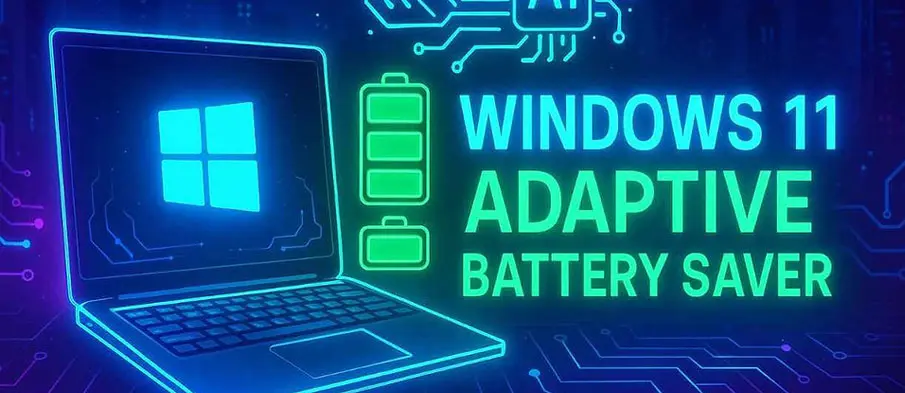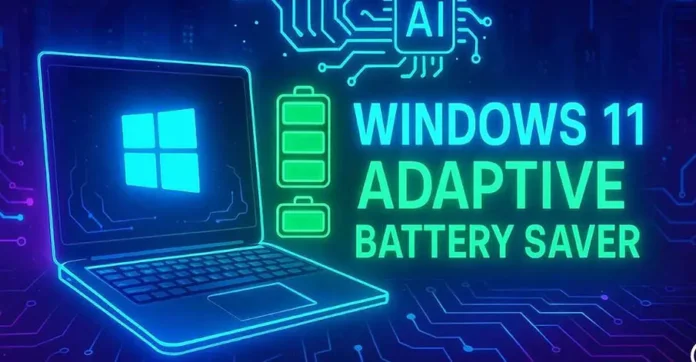
Microsoft is experimenting with a new power-saving feature in Windows 11 called “adaptive energy” saver, aimed at extending battery life on laptops, tablets, and handheld PCs. Unlike the current energy saver mode—which activates only when battery levels drop—this new option adjusts settings proactively based on how much the device is being used.
The key difference lies in its intelligent behavior. Instead of relying solely on battery percentage, adaptive energy saver monitors the system’s workload. When the device is idle or handling light tasks, it automatically enables power-saving measures even if the battery is still high. According to Microsoft, “If your system is not under heavy load, like when it’s idle or running light tasks, this feature can automatically turn on energy-saving measures, even if your battery is still high.”
Currently, the standard energy saver reduces screen brightness, pauses background activity, and delays non-essential updates once the battery hits a low threshold. The adaptive version retains most of these benefits but does so more subtly. Importantly, “it doesn’t dim your screen, which means users can continue working without any noticeable change in display brightness.”
This mode helps conserve energy during moments of low activity without sacrificing user experience. It reduces background processes, pauses non-critical syncing from apps like OneDrive and Phone Link, and may temporarily defer less important Windows updates. “Since the adaptive mode doesn’t reduce screen brightness, you’re less likely to notice that it’s even active,” Microsoft notes.
The feature is now being tested in the Windows 11 Canary Channel, a preview platform where Microsoft rolls out experimental tools. It’s an optional setting, so users must enable it manually via system settings. As of now, it is limited to battery-powered devices and won’t apply to desktop PCs, although previous versions of energy saver tools have been made available to desktops to help cut energy use.
With modern laptops already offering improved efficiency thanks to advanced processors, adaptive energy saver could offer an extra boost for users who spend long hours away from a charger. It’s a lightweight change, but one that may lead to noticeably longer battery life during periods of low-demand usage.





